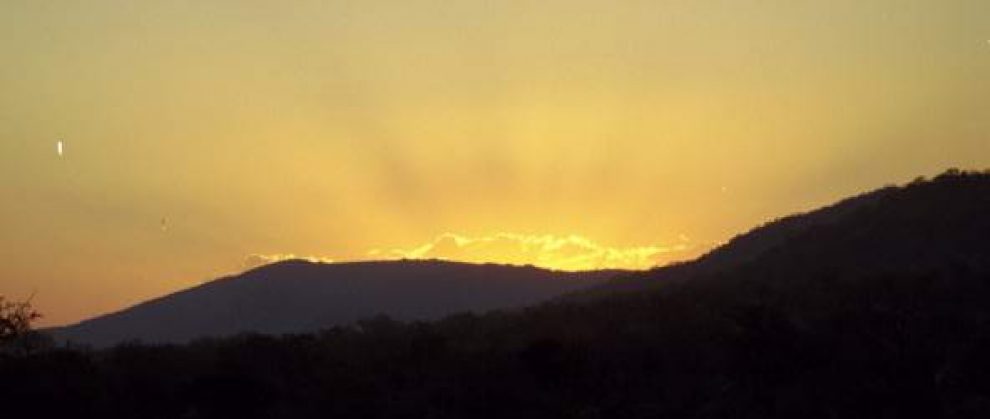Not many Americans have the opportunity to live and work in Cuba, but I am one of the fortunate few! In 1985, I received a grant from the Ford Foundation and the Johns Hopkins School of Advanced International Studies, Cuban Studies Program to spend two months in Havana researching the last vestiges of private sector agriculture. Gathering data on small farmers and social change in rural Cuba wasn’t easy, but the findings were fascinating. The Cuban government tried its hardest to transform agriculture into a 100% politically correct sector, which meant state-owned farms and producer’s cooperatives that required members to cede the title of their land to the collective. Each year, massive resources were poured into politically correct agriculture, and each year, the remaining private sector farmers in coffee and tobacco managed to maintain or increase their productivity. Capitalism and self-interest are powerful forces!
Dr. Wayne Smith, head of the Hopkins Cuban Studies Program, had served as US Chief of Mission at the non-embassy we maintain in Havana. Much beloved by the Cubans for pointing out the stupidities in US and Cuban policy alike with an even hand, Dr. Smith had organized an exchange program between Hopkins and the University of Havana, with Ford Foundation funding for specific research topics.
The summer of 1985 was when the US launched Radio Marti, a Voice of America program intended to somehow catalyze the anti-Castro revolution that 34 years of blockade had never managed. Nevertheless, the Castro regime was making noises about how Radio Marti was an insult to Cuban domestic sovereignty and for a while, my visa was in question.
Once the visa came through, another round of letters and phone calls was required, this time to the US Treasury Department, to get permission to spend money on soap, beer or whatever necessities I might require while in Cuba. Although it is not actually illegal for US citizens to travel to Cuba, it is illegal to spend money while in Cuba, which I suppose was some clever bureaucrat’s solution to certain First Amendment issues that might otherwise be raised. In any event, I was duly authorized to spend a minimal amount of money during my stay in Cuba. Huge relief, because who wants to be busted for buying shampoo or spend a month or two with dirty hair?
As a graduate student of international relations, with work experience in socio-economic development, I was certain that I could bring an open mind and fresh eye to my research in Cuba. As I discovered the realities behind the sugar cane curtain, I formed my own, often conflicting, views of tropical communism. The journal I kept during that two month period, interspersed with my research findings, forms the basis of my first book “My Summer in Havana: Coffee, Tobacco & Capitalism in Rural Cuba 1959-1985”.
I created the book fifteen years after the fact for a number of reasons, starting with the fact that, living in Miami, the “Cuba question” always looms large. The Elian Gonzalez saga should never have happened and perhaps if people knew (and cared) more, the next such fiasco could be avoided. Then too, Fidel Castro’s “new” market based initiatives in 2000 were in large part the same initiatives that I saw being tested in the summer of 1985 and then discarded a few years later because their success was undermining communist ‘values’. “The market” worked in 1985, worked at the dawn of the 21st century and where Raúl Castro has allowed it to operate, it works today as well. I remain convinced that dropping the blockade and flooding Cuba with consumer goods would be the fastest way to provoke regime change. I’m not sure, however, that regime change will necessarily be a positive thing! Cuba was anything but a democracy before Castro. It was a dictatorship, pure and simple. A dictatorship that encouraged roughly two dozen wealthy families to build their sugar cane, rum, coffee and tobacco empires on the backs of a much beleaguered peasant class. What will the post Castro brother Cuba be a democracy? I don’t think I’d bet on that.
If you’re interested in agriculture and rural development, you’ll find it fascinating to read how communism changed life in the Cuban countryside. The incredible resilience of the private sector is, to my mind, a testament to the power of capitalism and free will. The comparatively weak performance of State farms and politically correct cooperatives suggests that humanity’s willingness to put “the greater good” ahead of self and family is limited. In designing rural financing and technical assistance programs, there are undoubtedly a number of lessons to be learned from the Cuban experience.
Havana in the 1950s was the THE destination for pleasure-seeking sun-worshippers. Visiting Havana in 1985 was like walking through the film set of an old movie. The buildings, cars, clothing, colors – all seemed frozen in an earlier time. Most of my photos and film mysteriously could not be developed, but the photos on my last roll of pictures taken in Argentina came out and are included in the book. Through those photos and the pages of my journal, you too can experience life in Fidel Castro’s Havana!
The book will be available for purchase at midnight on July 2nd, just in time to entertain you over the July 4th holiday. You can read a sample at Smashwords or pre-order from Apple iTunes books or Barnes & Noble. Still working on the Amazon Kindle version, but it will be up by July 3rd. If you’d like to read the whole thing for FREE — or at least, free of financial charge but in exchange for an honest written review on Amazon or iTunes – tweet @LaurenOPV or send an email to Lauren.OPV@gmail.com and I’ll hook you up 🙂
By Lauren A. Burnhill
